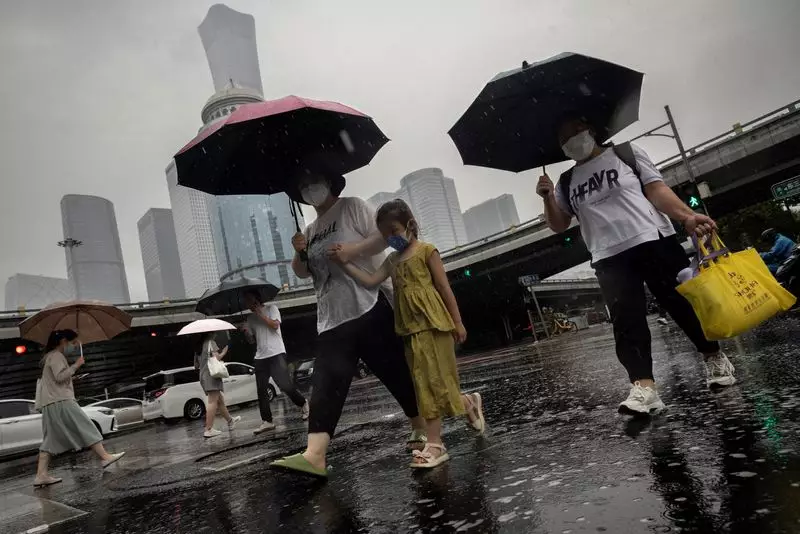As countries around the world grapple with easing inflation rates following an extraordinary period of soaring prices, China’s economic landscape tells a different story. While many regions rejoice in the signs of stabilizing prices, the People’s Republic is facing an unsettling scenario of deflationary pressures. Understanding the complexities of this emerging phenomenon is crucial, as its ramifications might extend far beyond China’s borders and into the global economy.
In August, China reported a consumer price increase of just 0.6% year-on-year, driven primarily by food prices experiencing a spike due to adverse weather conditions rather than a genuine revival in consumer demand. Although this uptick marks the fastest inflation rate China has seen in half a year, it is not indicative of sustained economic health. Instead, underlying metrics suggest that consumer sentiment remains weak. Core inflation figures, measured without volatile products like food and fuel, revealed a troubling deceleration, dipping to 0.3%—the lowest since early 2020. This paints a picture of an economy struggling to motivate its consumers, a stark contrast to the more optimistic narratives emerging elsewhere.
Deflation, a persistent decline in prices, poses severe risks to economic vitality. The situation becomes particularly perilous when consumers anticipate falling prices, potentially leading them to delay purchases. This behavioral shift can trigger a downward spiral, adversely affecting corporate revenues and leading to layoffs, thereby further constricting spending in an economy that relies heavily on consumer confidence. Morgan Stanley analysts draw parallels to Japan’s “lost decades,” a term that encapsulates the prolonged stagnation following the nation’s economic bubble burst in the late 1980s. The lessons from Japan serve as a cautionary tale for China, highlighting how difficult it can be to reverse entrenched deflationary trends.
As China combats these emerging risks, significant government intervention may be necessary. However, the government’s existing measures aimed at stimulating growth, such as increased industrial loans, have had a limited impact on invigorating consumer demand. Instead, this approach has merely increased the supply of goods without addressing the fundamental issue—weak consumer appetite. As a result, the hoped-for boost in income and spending has not materialized, raising questions about the efficacy of current policies.
Looking ahead, China has set an ambitious target of achieving a 5% growth in real GDP for 2024. However, the persistent specter of deflation threatens this goal. Economic analysts suggest that policymakers may need to consider additional fiscal measures to stimulate demand reliably. Proposals for support within critical sectors—such as real estate and social welfare—could help alleviate the strains on households and strengthen savings. Yet, there remains skepticism about the likelihood of immediate, impactful policy changes, given the current governmental stance.
Moreover, the crisis affecting China is not contained within its borders. The nation’s status as a key global trading partner means that its economic malaise can have ripple effects, influencing inflation rates in various economies worldwide. Research indicates that China’s deflationary cycle has already contributed to a noticeable dip in core inflation rates by approximately 0.1 percentage points in both the United States and the Eurozone. Given that central banks in these regions are poised to initiate new cycles of interest rate cuts, the interconnected nature of these economies becomes evident.
The specter of deflation in China raises significant concerns for its economy and the global economic landscape. With consumer confidence wavering and governmental support strategies proving insufficiently robust, the Chinese economy may find itself at a fragile juncture. As history teaches, navigating the treacherous waters of deflation can be arduous, and the global implications of China’s economic trajectory warrant close scrutiny. Powerless to influence external conditions entirely, stakeholders must remain vigilant and responsive in adapting to the unfolding complexities that lie ahead.

